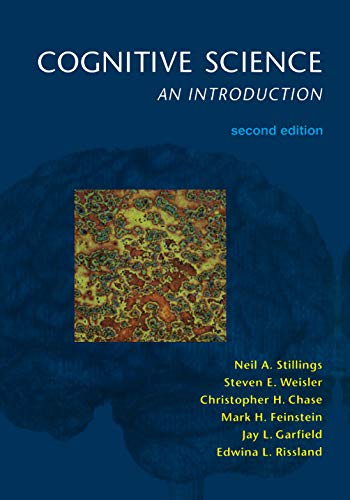Cognitive Science is a single-source undergraduate text that broadly surveys the theories and empirical results of cognitive science within a consistent computational perspective. In addition to covering the individual contributions of psychology, philosophy, linguistics, and artificial intelligence to cognitive science, the book has been revised to introduce the connectionist approach as well as the classical symbolic approach and adds a new chapter on cognitively related advances in neuroscience.
Cognitive science is a rapidly evolving field that is characterized by considerable contention among different views and approaches. Cognitive Science presents these in a relatively neutral manner. It covers many new orientations theories and findings, embedding them in an integrated computational perspective and establishing a sense of continuity and contrast with more traditional work in cognitive science. The text assumes no prerequisite knowledge, introducing all topics in a uniform, accessible style. Many topics, such as natural language processing and vision, however, are developed in considerable depth, which allows the book to be used with more advanced undergraduates or even in beginning graduate settings.
A Bradford Book
Neil Stillings is Professor of Psychology in the School of Communications and Cognitive Science at Hampshire College. Steven Weisler is Associate Professor of Linguistics in the School of Communications and Cognitive Science at Hampshire College. Christopher Chase is Associate Professor of Cognitive Science in the School of Communications and Cognitive Science at Hampshire College. Mark Feinstein is Professor of Linguistics in the School of Communications and Cognitive Science at Hampshire College. Jay Garfield is Professor of Philosophy in the School of Communications and Cognitive Science at Hampshire College. Edwina Rissland is Professor of Computer Science at the University of Massachusetts, Amherst and Lecturer on Law at Harvard University Law School.
